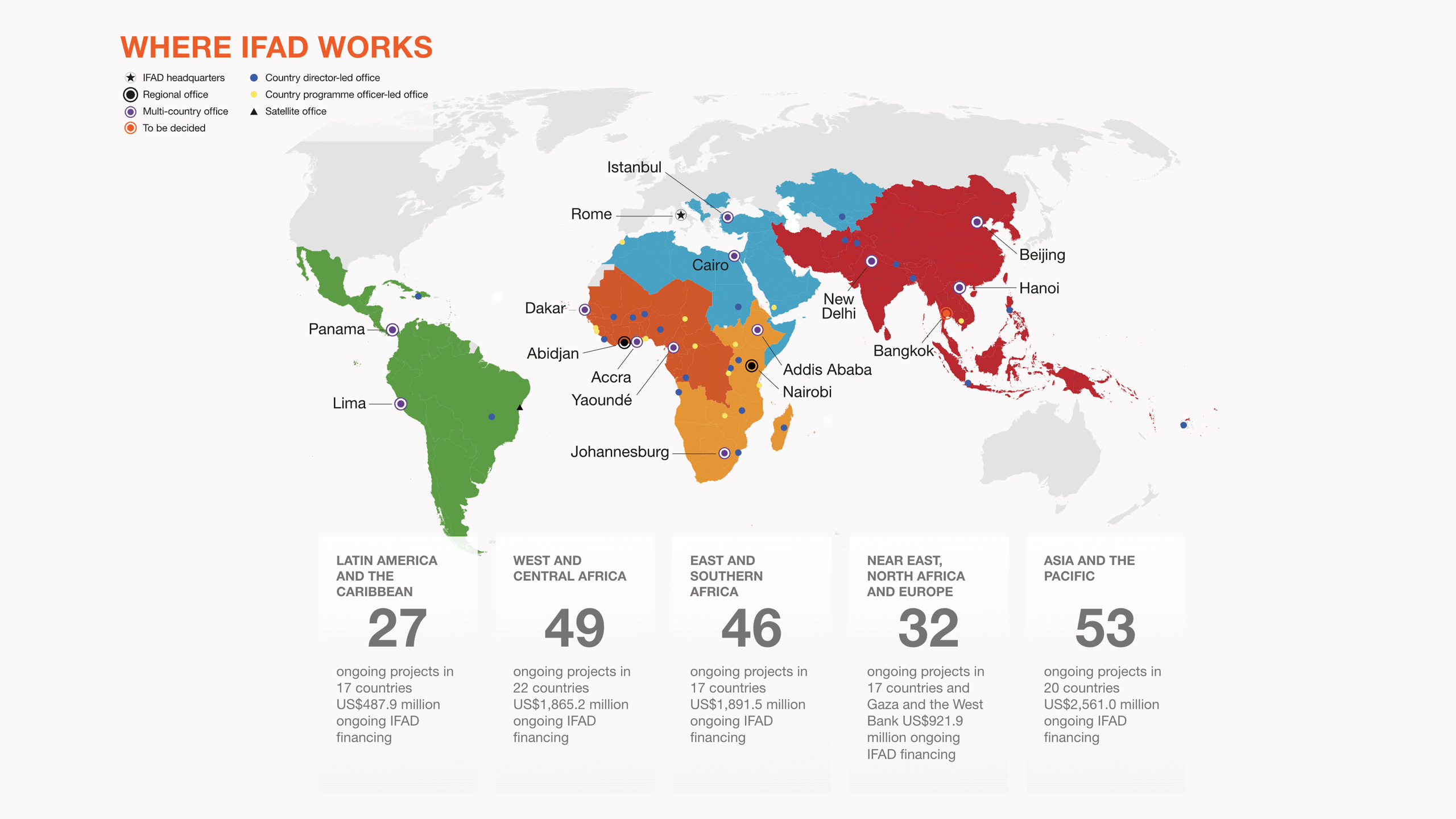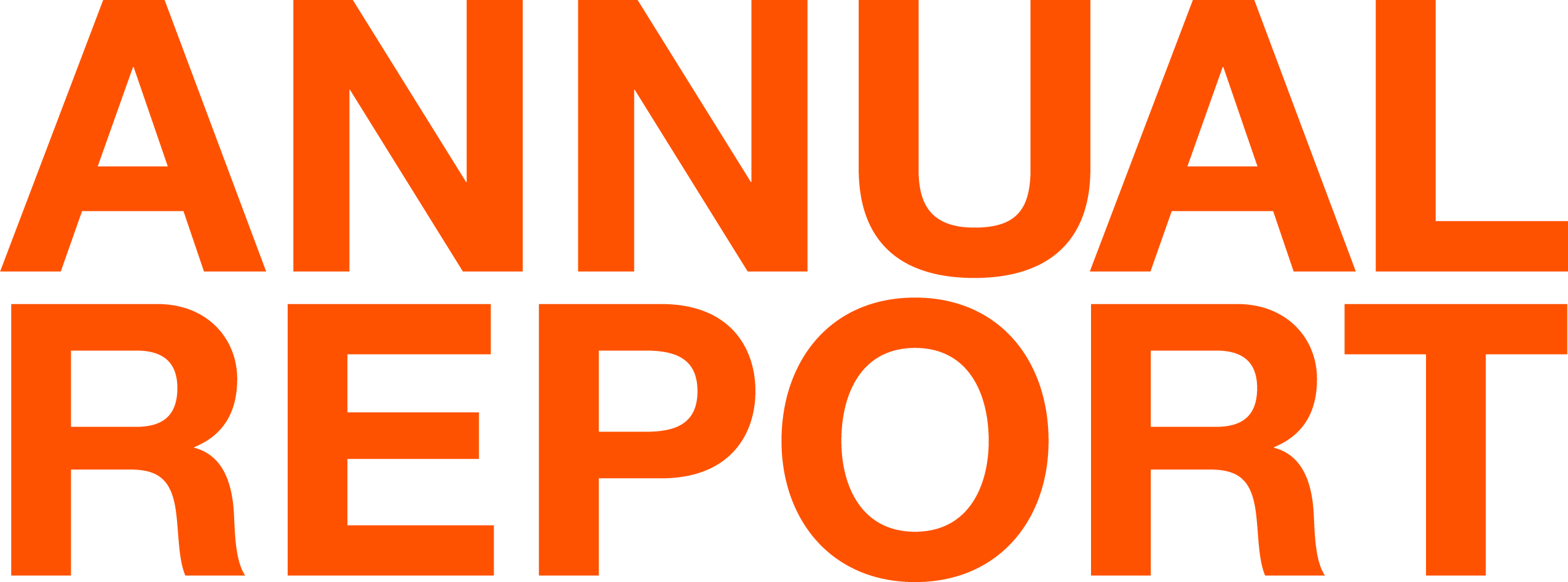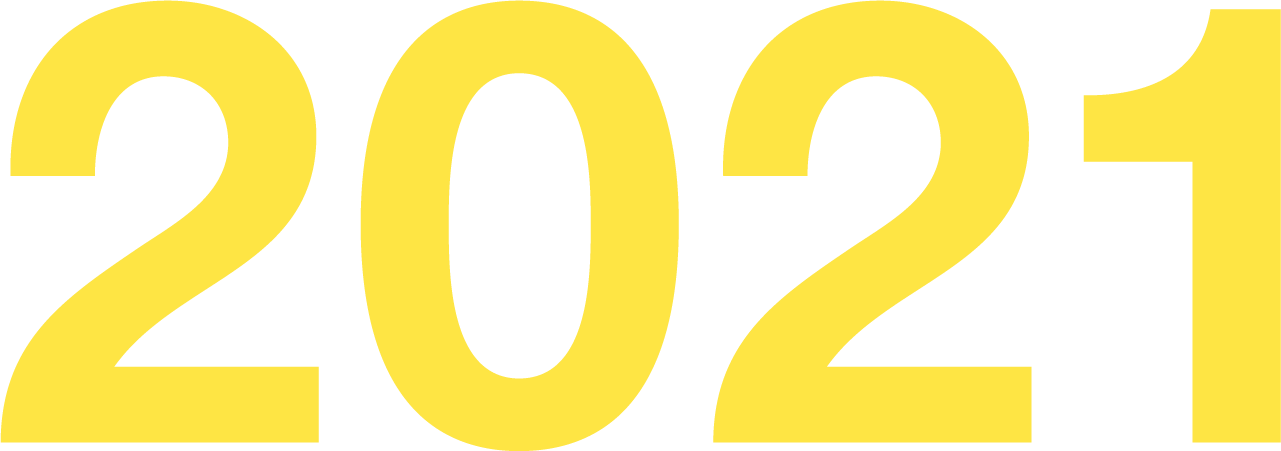Annual Report 2021
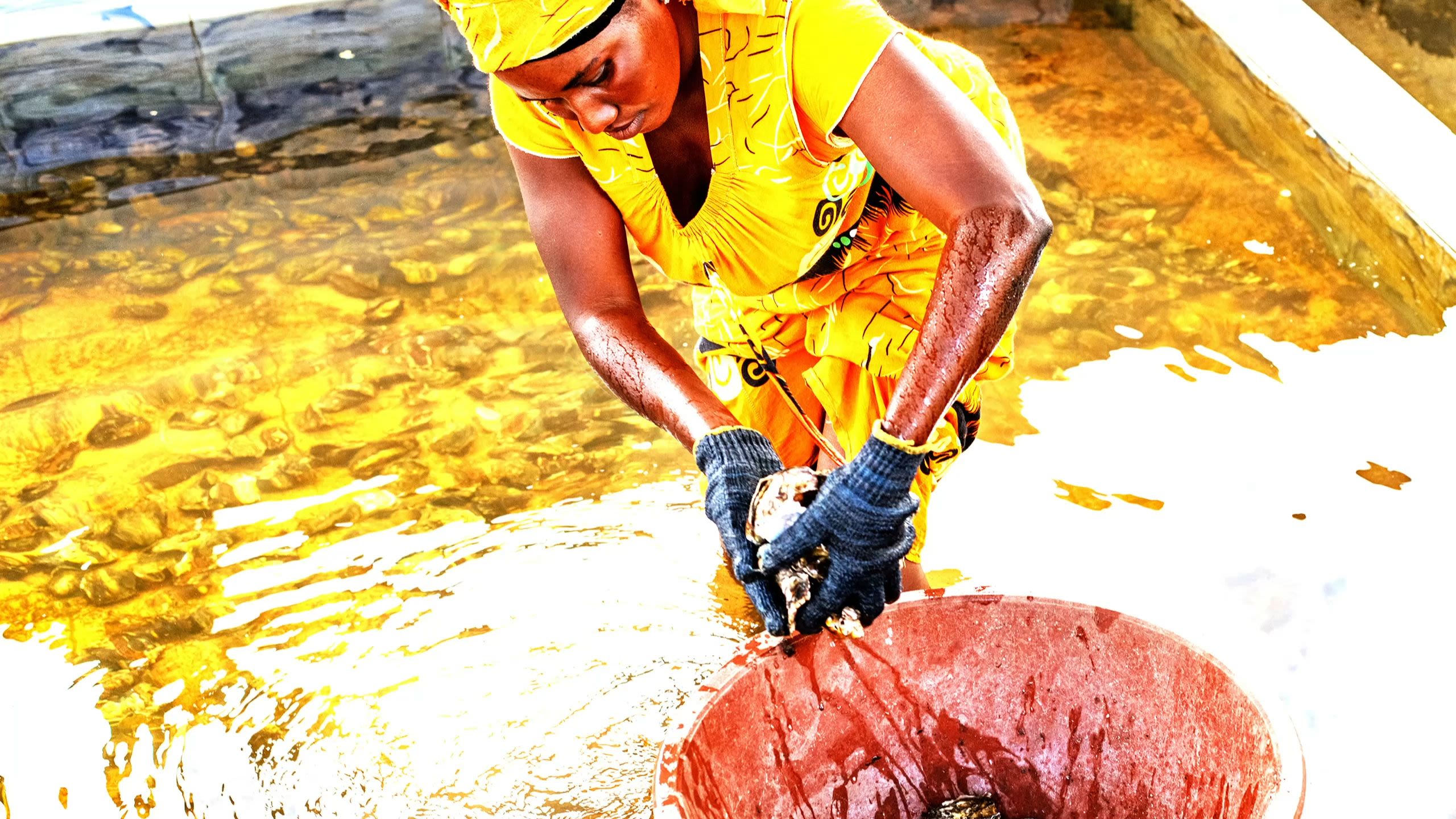
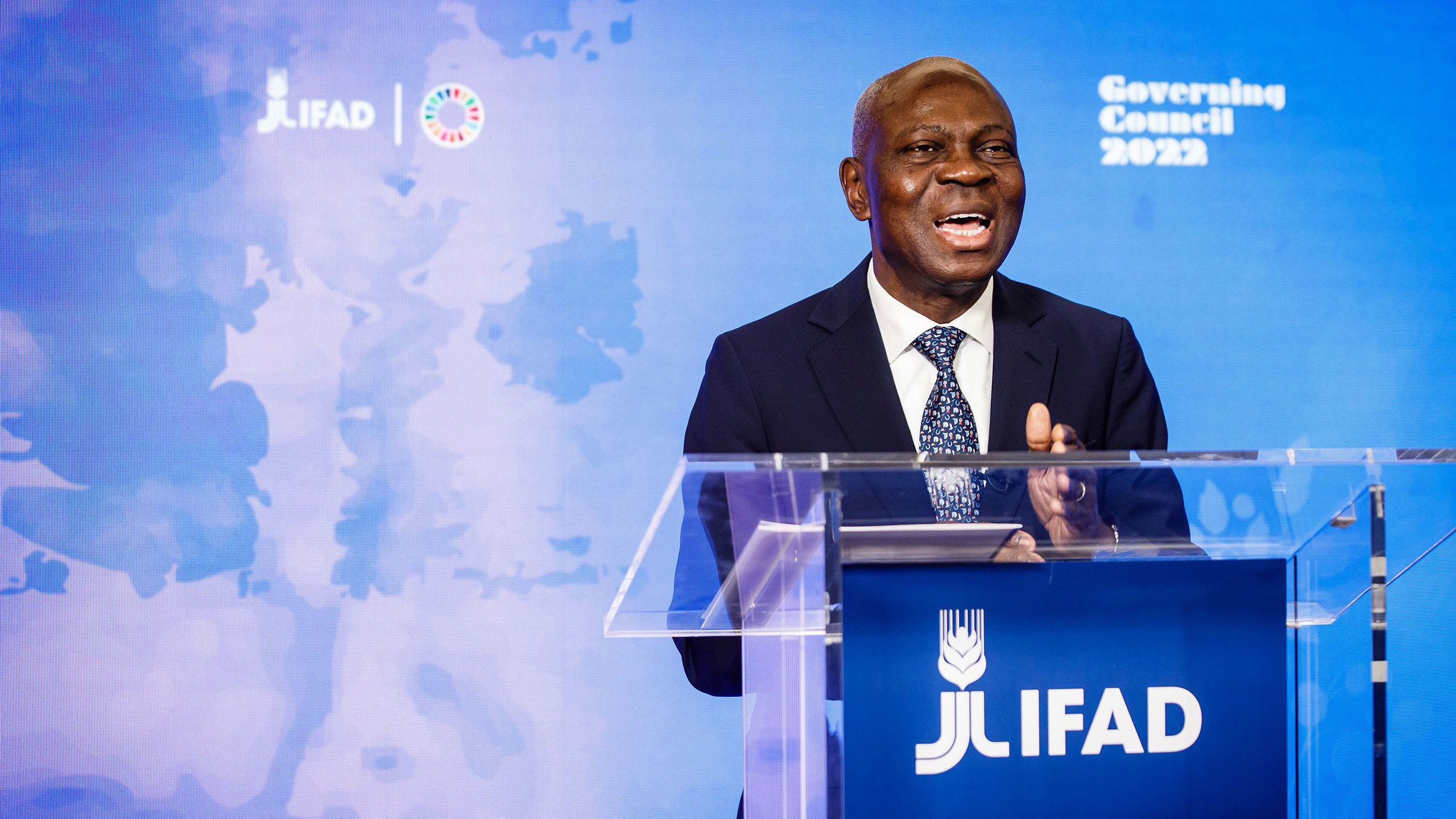
President's Foreword
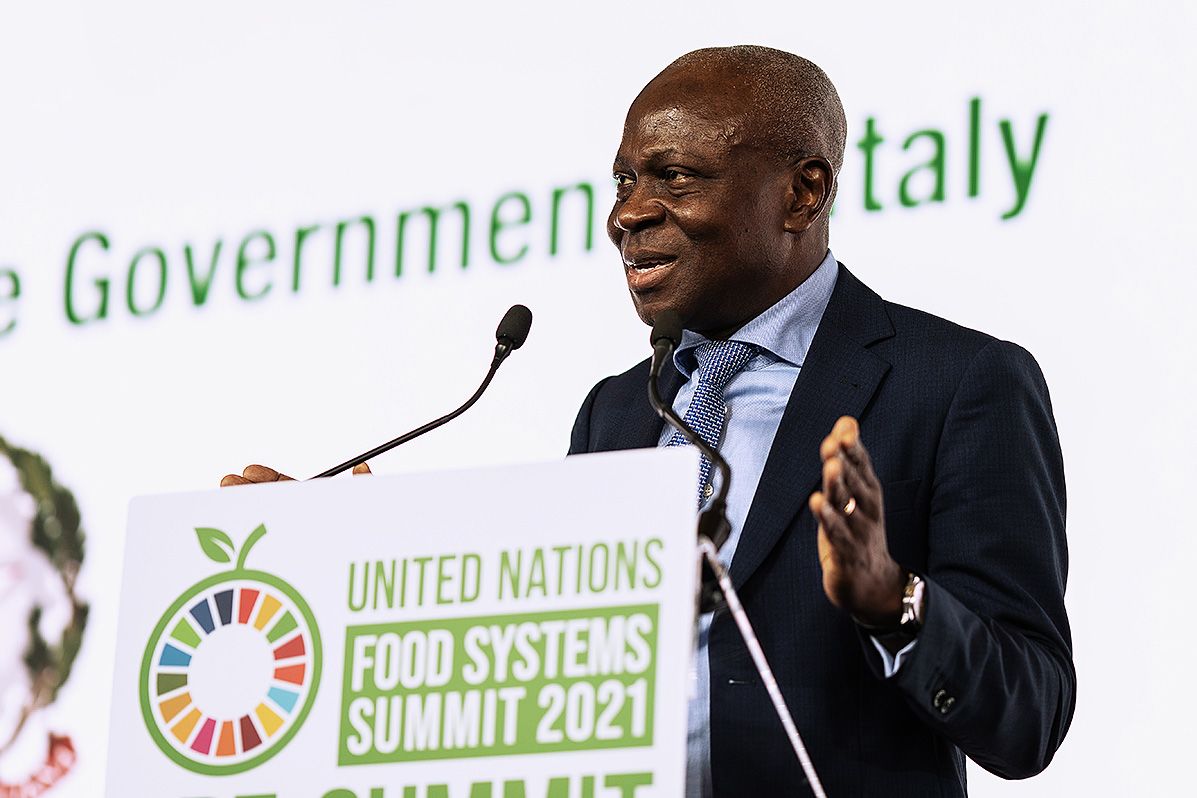
©IFAD/Daniele Bianchi
©IFAD/Daniele Bianchi
The world entered 2021 in a state of deep uncertainty. Time was running out to keep the global temperature increase to less than 2°C, hunger was on the rise and SDG 2 seemed further out of reach than ever. And we were still reeling from the impacts of the COVID-19 pandemic.
Rural people are the first to feel the effects of all these issues and they must be central to the solutions. 2021 was a year when this reality finally gained more widespread attention and traction on the global stage. It was a year when rural people, the resilience of rural communities – and the specific role of IFAD – became central to the global agenda like never before. With this in mind, IFAD continues to take action to scale up our work in building the resilience of rural people’s livelihoods across the world.
We need food systems that provide decent work and incomes for all who grow, process, store and market our food.
Major milestones during the year included the United Nations Food Systems Summit, the 2021 United Nations Climate Change Conference (COP26) in Glasgow, and the 2021 Finance in Common Summit. It was critical that rural people were central to the agreed solutions at these major global events, and that investments in their livelihoods were recognized as indispensable for a brighter and more resilient future.
IFAD’s unique knowledge, embedded in several authoritative studies we released in 2021, enabled us to emphasize that we need food systems that provide decent work and incomes for all who grow, process, store and market our food. And it enabled us to provide specific solutions to achieve this – from how to create rural employment through local small enterprises, to prioritizing climate adaptation for small-scale farmers, to making healthy diets accessible to all. Among studies we launched in 2021 was our flagship Rural Development Report, dedicated to the theme Transforming food systems for rural prosperity and released in the lead-up to the Food Systems Summit. We also published research reports in connection with COP26 to showcase the need for investments in climate adaptation. Both the technical report on Nature-based Solutions and the series of climate risk analysis reports What can smallholder farmers grow in a warmer world? provided evidence and examples to support our call for more investment in adaptation for small-scale farmers. Fresh data, evidence and new insights, and recommendations, are an important way for IFAD to influence debates and advocate for rural people on the global stage.
We also needed to bring rural people themselves to the global stage so that they could articulate their concerns and solutions to world leaders. We found various ways to convene dialogues with rural people and their organizations, using tools such as radio to reach those who would normally be left out of discussions, and documenting rural people’s opinions through a dedicated rural voices website. We also actively engaged in the official Food Systems Summit dialogue process, particularly by convening dialogues, and by channelling funding to farmers’ and indigenous peoples’ organizations to support them to hold their own dialogues. And we brought rural voices to COP26, including by putting rural people on the stage during the 31 events we broadcast to live and virtual audiences from a dedicated IFAD pavilion. These initiatives gave rural people a valuable opportunity to influence global decisions that affect them.

©IFAD/Gibson Digital
©IFAD/Gibson Digital
These efforts bore fruit. We are pleased that one of the outcomes of the Food Systems Summit was the establishment of a coalition for action on decent work and living incomes and wages for all food systems workers, which IFAD will co-lead with the ILO.
But 2021 was not just about influencing others. We also had to continue walking the talk as an organization, to find ways to get more investment into rural areas where it is needed and to scale up the impact of that investment.
IFAD12 was a significant milestone. Our members sent an important signal on our ambition by setting the highestever resource mobilization target – US$1.55 billion in core contributions for the 2022-2024 IFAD12 period. This outcome represents a compelling vision of IFAD’s role in contributing to global recovery, rebuilding and resilience in a post-pandemic world.
While core contributions will remain the bedrock of our financial model, we will continue to do more to tap into supplementary sources of financing. Climate finance is a major focus for these efforts and over the past three years, we have mobilized almost US$300 million from sources such as the Global Environment Facility, the Green Climate Fund and the Adaptation Fund. This will help us to deliver on our commitment to ensure that global climate finance reaches small-scale farmers.
IFAD INITIATIVES GAVE RURAL PEOPLE A VALUABLE OPPORTUNITY TO INFLUENCE GLOBAL DECISIONS THAT AFFECT THEM
Building on our AA+ credit rating, we are in a position to complement core replenishment contributions with borrowed resources through the recently introduced Integrated Borrowing Framework (IBF), while also pursuing increased domestic and international cofinancing. In 2021, the implementation of our IBF work began and in June, we launched the Sustainable Development Finance Framework (SDFF), targeting selected impact investors with a demonstrated interest in supporting our mission. Funds raised in accordance with the SDFF will be entirely channelled to projects to support our target population: the poorest, most vulnerable and marginalized rural people.
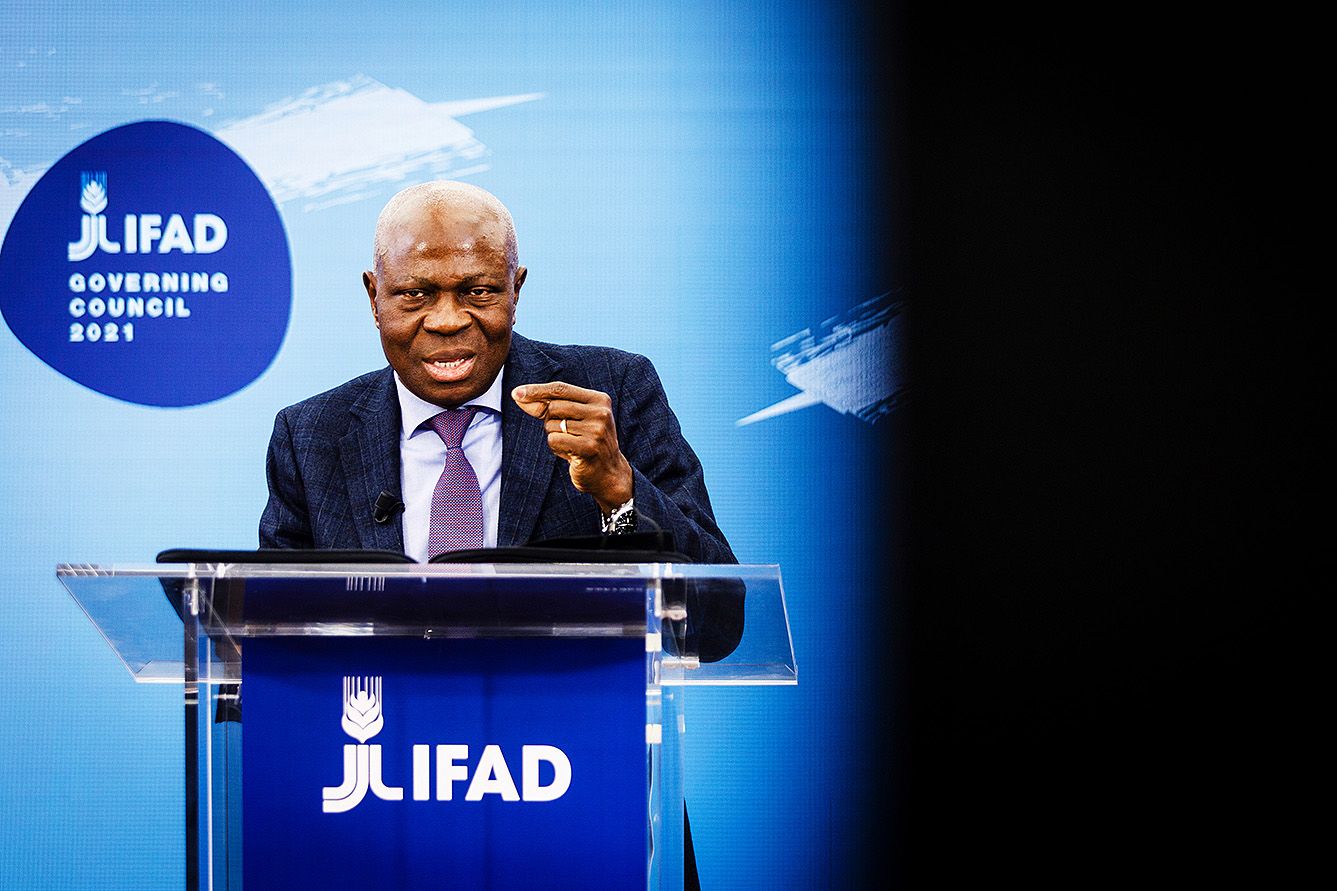
©IFAD/Flavio Ianniello
©IFAD/Flavio Ianniello
Indeed, as we diversify our funding base, it is more important than ever that we ensure 100 per cent of the investments we are involved in are directed towards poor rural people and are environmentally sustainable. For this purpose, we are integrating environmental, social and governance (ESG) considerations into our investments, as well as building up our investments in green bonds and other thematic ESG securities. And we are actively advocating and ensuring all https://shorthaour investments strictly adhere to the Ten Principles of the United Nations Global Compact. This means we systematically exclude products, services and business practices that are incompatible with the fundamental principles of human rights, labour, environment and anti-corruption principles.
We are also further fostering an organizational culture built around inclusivity, equity and sustainability. For this purpose, in 2021 we launched an organization-wide approach to prioritize diversity, equity and inclusivity throughout IFAD. Ultimately, it will ensure everyone who works at IFAD can contribute to their fullest potential, drawing on their unique abilities, to help achieve IFAD’s mandate. We also conducted an IFAD-wide survey to assess experiences on hate speech, racism and discrimination and determine what actions we need to take to ensure they have no place at IFAD.
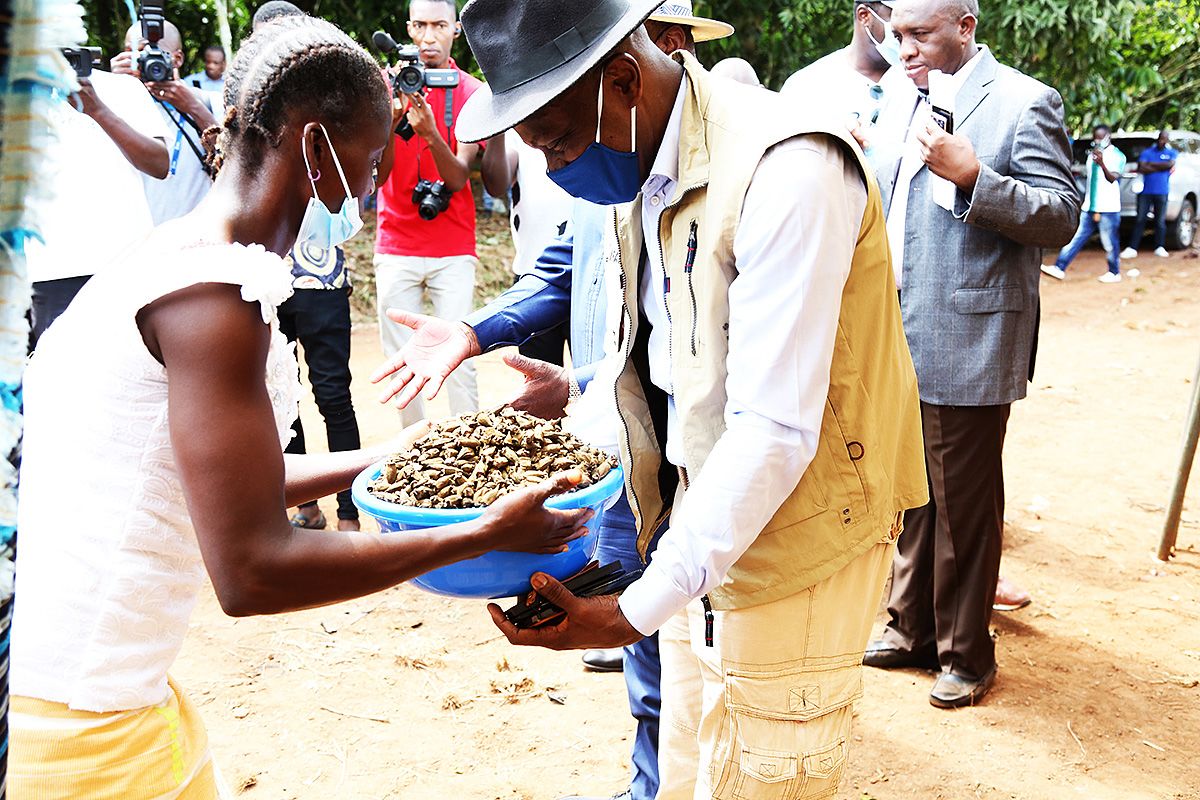
©IFAD/David Paqui
©IFAD/David Paqui
A central part of our organizational culture is a commitment to continually improve efficiency. We continue to focus on innovation and modern technologies to find solutions to business challenges. In 2021, we rolled out a corporate automation programme focused on the use of Artificial Intelligence. The focus so far has been on transactional automation, with a staff-driven approach to identify tasks for automation. Examples are automatic uploading of project results, robotic processes to insert exchange rates and use of chatbox to manage queries in multiple high-volume areas of our business.
Achieving continual improvements in efficiency necessarily requires innovation and the second edition of IFAD’s Innovation Challenge was launched at the end of 2021 to bring innovations into our work and business practices, with a specific focus on “innovations for culture change”. We are convinced that young people are at the heart of innovation and during the year promoted opportunities for young innovators in IFAD to grow and contribute to UN-wide innovation efforts through the IFAD and United Nations System Staff College Mentoring Partnerships initiative on the UN Innovation Toolkit. The IFAD Youth Network was extremely active in this space, which places innovation at the heart of UN efforts to bring about the changes needed to achieve the SDGs.
We are fostering an organizational culture built around inclusivity, equity and sustainability.
And on sustainability, our headquarters building maintained its platinum certification for Leadership in Energy and Environmental design (LEED), the highest green building certification available worldwide. This was thanks to initiatives such as improving biodiversity in our grounds, harvesting renewable energy and reducing non-recyclable waste.
2021 was a year when we helped put in place many of the building blocks for a robust and inclusive global recovery. And we continued to advance the reforms we need to drive the changes we want to see in the world. I am pleased that international audiences have listened to us, and perhaps even more, that they have listened to the voices of the rural people we took to major global events during the year. I have no doubt that in the years ahead, IFAD will continue to build on what we have achieved and to deliver on its noble and worthwhile goals.
We are now in 2022 and already dealing with new shocks. To do so, we are looking back at the results and lessons of 2021, including how we worked with rural people to build their resilience to the pandemic. These lessons are central to what we are doing now to scale up our work, and to provide critical support to rural people affected by disruptions to food systems brought about by the war in Ukraine – for which we have set up a dedicated Crisis Response Initiative.
2021 WAS A YEAR WHEN WE HELPED PUT IN PLACE MANY OF THE BUILDING BLOCKS FOR A ROBUST AND INCLUSIVE GLOBAL RECOVERY
AND WE CONTINUED TO ADVANCE THE REFORMS WE NEED TO BE THE DRIVER OF THE CHANGES WE WANT TO SEE IN THE WORLD
As I prepare to leave IFAD, I do so with a profound sense of gratitude for all that we have been able to achieve. It has been an honour and a privilege to serve this organization and I believe IFAD is wellplaced to play a major role in achieving lasting and meaningful change for the world’s most vulnerable people.
IFAD, its staff, and the rural people it serves, will always remain close to my heart.
With the continued support of its partners – especially Member States – I know that this organization will continue its historic mandate to strive towards a future where no rural person lives in poverty or hunger.
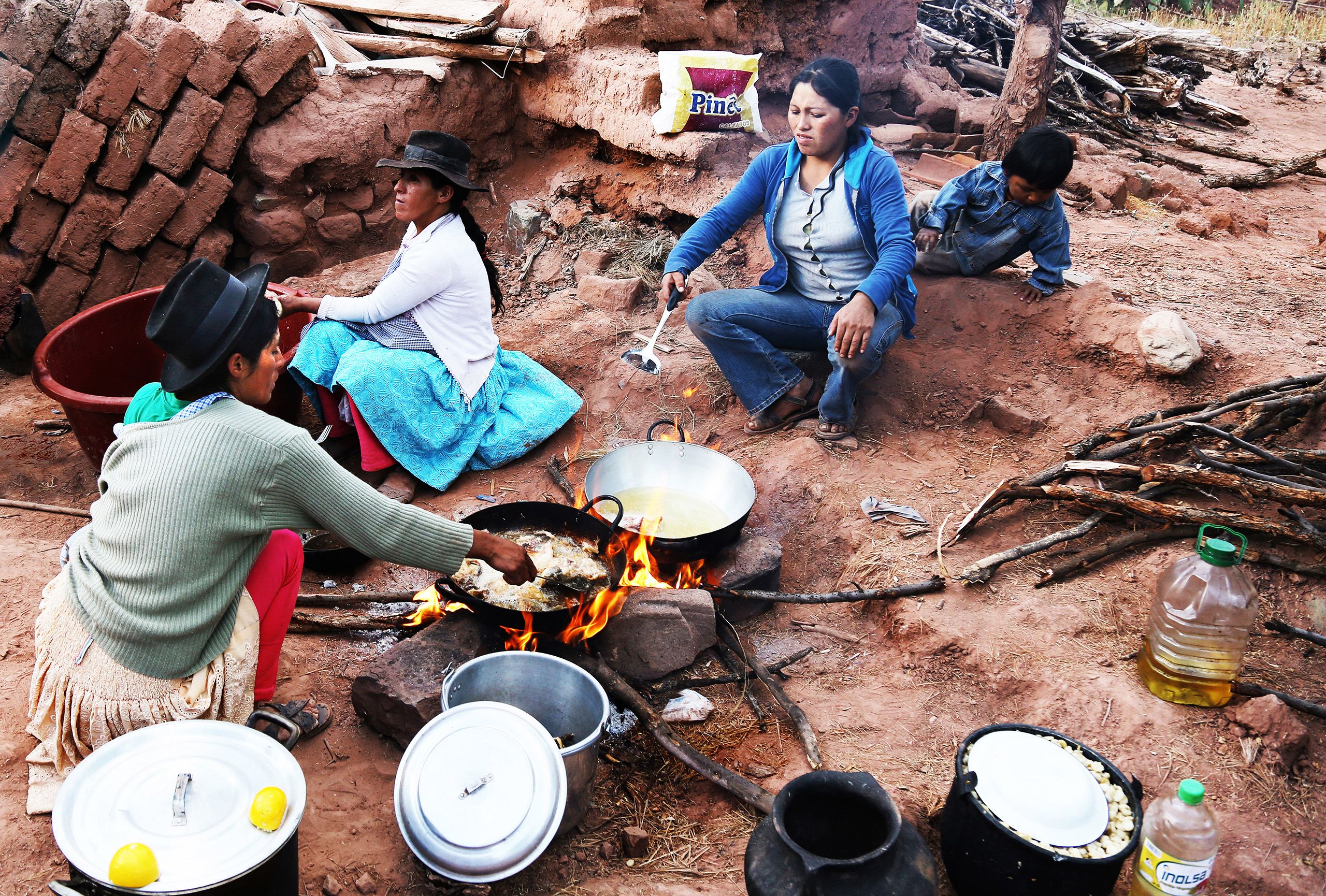
2021 at a glance
The world entered 2021 on a precipice. We all knew that the path we had been on:
● Was unsustainable
The planet is on track to warm by over 3°C by the end of the century, a situation that would exacerbate deadly heatwaves, flooding and droughts. It would also accelerate threats to food production systems and to the livelihoods of the world’s poorest and most vulnerable people.
● Was inequitable
The world’s richest 1 per cent have more than twice the wealth of 6.9 billion people and inequalities continue to worsen: the share of income captured by the poorest half of the world is around half of what it was two centuries ago.
● Had led to dire outcomes, especially for the poorest and most vulnerable people
The most recent estimates indicate that between 720 million and 811 million people were facing hunger in 2020, an increase of over 100 million from 2019.
THE MOST RECENT ESTIMATES INDICATE THAT BETWEEN 720 MILLION AND 811 MILLION PEOPLE WERE FACING HUNGER IN 2020, AN INCREASE OF OVER 100 MILLION FROM 2019
IN 2021, WE NEEDED TO CHART A NEW PATH
In 2021, we needed to chart a new path. It was time to come together and fix systems that were not working. Major milestones during the year were:
● The United Nations Food Systems Summit
● The United Nations Climate Change Conference (COP26)
● The Finance in Common Summit
The urgent (and interlinked) need to transform food systems and to address the climate emergency cuts across IFAD’s work. We had much to contribute in shaping consensus on the actions needed and how to finance them.
● To shape debates on food systems and climate, we:
• Brought the voices of rural people to the global stage
• Provided thought leadership through our flagship Rural Development Report Transforming Food Systems for Rural Prosperity
• Shared lessons from our work ► on how to address global challenges
• Collated concise and digestible key messages
• Advocated for positive change through global media
● Solutions from our work that we brought to the world at the Food Systems Summit and at COP26 included:
• Investing in climate adaptation for small-scale farmers ►
• Prioritizing nature-based solutions ►
• Building the resilience of rural people’s livelihoods to COVID-19 and other threats ►
• Focusing on including traditionally marginalized groups, such as women and youth ►
There was strong media interest in our work and our messages. At COP26, our advocacy for more investments in climate adaptation captured much global attention – generating more than 1,200 stories in major media. The rural people whose voices we took to COP26 and the Food Systems Summit told world leaders in a clear and compelling way what they – and we – need for a better future.
“What helps us is having access to technology and machinery so we can experiment and work in a productive way.”
Shirley Casachagua, pottery maker, Peru
“Climate change has caused drought and reduced our capacity to access water. This has affected the wheat crop.”
Temesgen Tchane, wheat farmer, Ethiopia
“We need financial assistance schemes, like loans, so we can afford wheat grains.”
Shabana Bibi, farmer and tailor, Pakistan
We know what we want to do and how. But we also know that in order to achieve the scale of the impact required, we need to be in a position to do even more, to reach even more people, to have an even greater effect. That’s why, in 2021, we:
That’s why, in 2021, we:
● Expanded the number of people we reach
The Report on IFAD’s Development Effectiveness 2021 revealed that IFAD is exceeding its promises on the number of people we are reaching. The latest data indicates that, in 2020, IFAD reached 128 million people, above the target of 120 million. A good balance in terms of gender and age was also realized: 49 per cent of direct beneficiaries were women, while 22 per cent were youth. With the success of the Twelfth Replenishment of IFAD’s Resources (IFAD12), the refinement of our tools for targeting, and greater country presence through decentralization, we expect to see these numbers expand further in the years ahead.
● Set a record target for resource mobilization with our Member States
On 16 February 2021, IFAD Member States joined the final meeting of the IFAD12 Consultation, pledging a record level of financial contributions for the programme period 2022-2024. The outcome at the end of the consultation was around US$1.1 billion in core contributions. IFAD12 was a significant milestone. Member States sent an important signal in terms of IFAD’s global role by setting the highest ever resource mobilization target to enable the Fund to double and deepen its impact by 2030. The IFAD12 replenishment outcome outlines an impact vision for IFAD, focusing particularly on post-pandemic recovery, rebuilding and resilience.
● Played a thought leadership role on major global topics affecting rural people, and advocated for policy solutions to improve their lives
We devoted much effort to bringing the knowledge we have gained from our work to the world’s attention. We published our flagship Rural Development Report Transforming Food Systems for Rural Prosperity in the lead-up to the Food Systems Summit, and a major study, What Can Smallholder Farmers Grow in a Warmer World?, in conjunction with COP26. Other sources of knowledge we took to the world included guidance on securing land rights for rural women and for youth, and on the role of remittances in strengthening rural livelihoods, a topic subsequently highlighted in the 2021 G20 Rome Leaders’ Declaration.
● Used our credit status to tap into new sources of development finance
We are diversifying our funding sources while maintaining disciplined and robust risk management systems to preserve our AA+ rating. Building on our preferred creditor status, we are complementing our core replenishment contributions with borrowed resources through the recently introduced Integrated Borrowing Framework, while also pursuing increased international cofinancing through partnerships with other multilateral development banks, bilateral partners and development funds. In doing so, IFAD will capitalize on a stronger country presence and close relationships with governments and other development actors on the ground to broaden reach and impact.
● Embarked on an ambitious reform of our financial management approach for greater agility, efficiency and transparency
We began the process of shifting from a financial management approach that is largely rule-based and transactional to one that is more principle-based and agile, with the aim of creating efficiencies, investing in country systems and staff, and ensuring alignment with international best practice. This included making greater use of country financial management systems to alleviate the burden placed on borrowers and recipients when they run parallel ring-fenced systems, as well as driving enhancements in financial discipline among projects through a more robust financial reporting and monitoring relationship.
49 PER CENT OF DIRECT BENEFICIARIES WERE WOMEN, WHILE 22 PER CENT OVERVIEW WERE YOUTH
IFAD REACHED 128 MILLION PEOPLE, ABOVE THE TARGET OF 120 MILLION
● Continued our journey in broadening our funding sources to increase delivery and expand impact on the ground
In June 2021, we launched the Sustainable Development Finance Framework (SDFF). This will guide our engagement with selected institutional impact investors that have shown a strong focus on sustainable finance and an interest in supporting IFAD’s mission to eradicate rural hunger and poverty. Funds raised in accordance with the SDFF will be entirely channelled to finance projects that support its target population: the poorest, most vulnerable and marginalized rural people.
● Took the lead in implementing the outcomes of the United Nations Food Systems Summit
A major outcome of the United Nations Food Systems Summit was the formation of a Coalition of Action on Decent Work and Living Incomes and Wages for all Food Systems Workers.
In 2021, we launched the IFAD Innovation Talks, a series of learning and knowledge-sharing sessions highlighting innovative approaches, tools, products and services developed by IFAD and its partners.
Given the role we played as anchor agency for the summit’s action track on advancing equitable livelihoods – building on our first-hand operational experience of building rural people’s livelihoods ► – IFAD has been assigned to lead this coalition, with our partners the International Labour Organization and CARE as co-hosts. The coalition will be dedicated to ensuring economic and social justice and the right to adequate and nutritious food for all food systems workers. IFAD was also entrusted with a leadership role in addressing finance as a “means of implementation” for food systems transformation.
● Pioneered innovation to improve performance and find better solutions for rural people
Recognizing that rural people are facing new, more complicated challenges and that, in today’s landscape, good practices may quickly become obsolete, we are going further to find innovative solutions. In 2021, we launched the IFAD Innovation Talks, a series of learning and knowledge-sharing sessions highlighting innovative approaches, tools, products and services developed by IFAD and its partners. We also hosted a Sharefair on “Geospatial tools and applications for climate investments” ► at COP26, where we highlighted real-life applications. And we contributed to major global innovation initiatives, including the Agrobiodiversity Innovation Challenge – where we funded winning solutions – the United Nations Innovation Toolkit, the United Nations Culture Change Innovation Challenge and the Moonshots for Development working group, among others.
● Walked the walk on sustainability
We need to lead by example, and in 2021 we went even further in implementing environmentally friendly initiatives across our business. This included cutting our energy use and water consumption through a range of initiatives, including harvesting renewable energy, collecting rainwater, reducing non-recyclable waste and decreasing paper usage. We are also increasing biodiversity in our grounds by adding bees and other pollinators, such as wild flowers. These and other initiatives have enabled us to maintain our platinum certification for Leadership in Energy and Environmental Design, ► the highest green building certification available worldwide.
Where IFAD Works

-
LATIN AMERICA AND THE CARIBBEAN
27
ongoing projects in
17 countries
US$487.9 million
ongoing IFAD
financing -
WEST AND CENTRAL AFRICA
49
ongoing projects
in 22 countries
US$1,865.2 million
ongoing IFAD
financing -
EAST AND SOUTHERN AFRICA
46
ongoing projects
in 17 countries
US$1,891.5 million
ongoing IFAD
financing -
NEAR EAST, NORTH AFRICA AND EUROPE
32
ongoing projects
in 17 countries
and Gaza and
the West Bank
US$921.9 million
ongoing IFAD
financing -
ASIA AND THE PACIFIC
53
ongoing projects
in 20 countries
US$2,561.0 million
ongoing IFAD
financing
